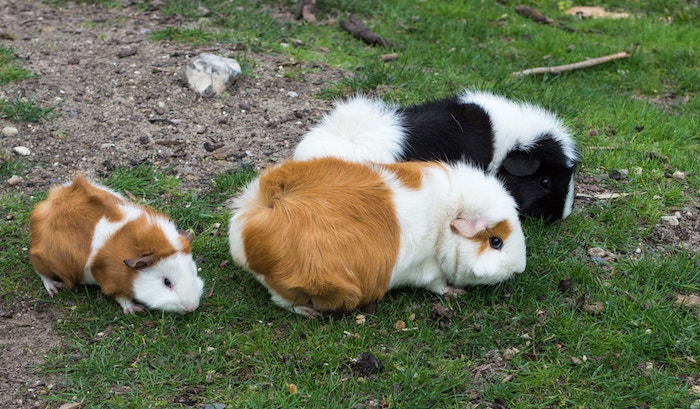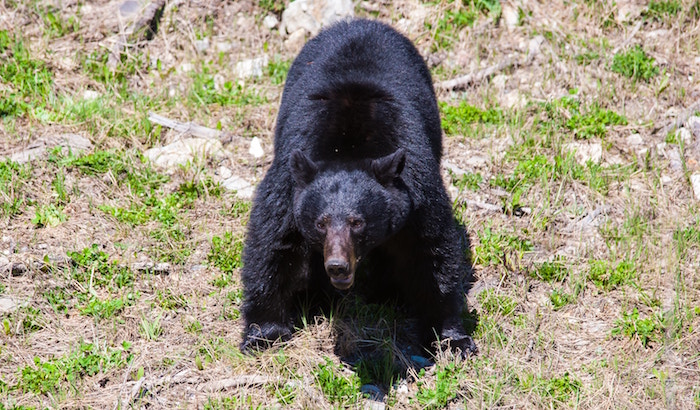The family of America’s 26th president, Theodore ‘Teddy’ Roosevelt, had a lot of pets: four dogs, two birds, a snake, a lizard, a badger, a rat, a pig, and more besides. The most delightful were those named for real people: the guinea pigs Dr. Johnson, Bishop Doane, Admiral Dewey, Father O’Grady, and Fighting Bob Evans – and Jonathan Edwards, which was a friggin’ bear. In honor of April Fool’s Day tomorrow, let’s talk about the historical namesakes of these presidential pets and see if we can turn them into a ridiculous band of furry NPCs.
This post is brought to you by beloved Patreon backer Justin Moor. Thanks for helping keep the lights on! If you want to help keep this blog going alongside Justin, head over to the Patreon page – and thank you!

First, the ludicrous premise: the Roosevelt family’s bear and guinea pigs are immortal, carry on the souls of their namesakes, and have stuck together through more than a century of existence. They fight crime. Or investigate the supernatural. Or some other genre trope appropriate to your campaign. Their profession likely determines whether these furry do-gooders are friends or rivals of your party. Now, let’s dive into these NPCs one by one!
First we have Admiral Dewey, named for Admiral George Dewey, an American naval hero. He commissioned just before the Civil War, was the hero of the battle of Manila Bay in the Spanish-American War, and ended his career as the highest-ranking admiral in the U.S. Navy. He was wealthy, dashing, handsome, and very much a ladies’ man. Dewey is also remembered for his abortive and badly bungled campaign for President in 1900. One could easily picture guinea pig Admiral Dewey as the leader of his squadron of furry crime-fighters, perhaps with his whiskers styled into a handlebar mustache and eternally dreaming of higher office.
Next is another Navy man, Rear Admiral Robley ‘Fighting Bob’ Evans, the commander of Teddy Roosevelt’s Great White Fleet. This flotilla of battleships circumnavigated the world from 1907 to 1909, stopping in foreign ports to showcase America’s newfound ability to project military power globally. Like Dewey, Evans saw action in the Civil War and the Spanish-American War. He was renowned for being firm, resolute, and as foul-mouthed a sailor as ever sailed. Guinea pig Fighting Bob Evans might be Dewey’s best friend and well-intentioned rival, the Han Solo to Dewey’s Luke Skywalker, or the Ron to Dewey’s Harry Potter.

Next we have the secret black heart of the team, William Doane, Bishop of Albany in the Episcopal Church from 1869 to 1913. He was a leading opponent of giving women the right to vote. This wasn’t out of place for a conservative churchman of the era, but it sure doesn’t play well today. If you only plan to have these guinea pigs in the campaign for a single session, maybe leave that out. But if the players want to see the critters come back as recurring NPCs, Bishop Doane’s malice adds complexity and therefore staying power. Maybe the other guinea pigs aren’t thrilled with having this guy on the team, but his deep knowledge of the human condition and/or the supernatural makes him too useful to force out. This tension makes the team more than a one-note gag.
The other clerical guinea pig, Father O’Grady, was a New York priest the Roosevelt family was acquainted with. He might serve as Bishop Doane’s assistant. Consider playing him as a lovable idiot – but one who is only pretending to be a dummy so he can foil Bishop Doane’s plans through his supposed incompetence.
The last guinea pig is Dr. Samuel Johnson (1709-1784), who alone among the rodents was not a contemporary of Roosevelt’s. He’s best known today as the author of the first English-language dictionary. He was a man of letters with broad interests in poetry, essay-writing, playwriting, morality, biography, and literary criticism. He’s less widely-read today, but for a century or two, he was held up as perhaps the greatest scholar writing in the English language. He also probably had Tourette’s: his symptoms included clucking, rubbing his knee, holding his head to one side, and moving his body backwards and forwards. Guinea pig Dr. Johnson is the brains of the team. Bishop Doane may have the specialized knowledge the team depends on, but Dr. Johnson applies it, coming up with the wild schemes that always seem to save the day. His deep morality (Johnson was an abolitionist decades before it was fashionable) makes him a natural opponent of Bishop Doane.

That leaves us with the bear, Jonathan Edwards (1703-1758). Like Dr. Johnson, Edwards was not a contemporary of Roosevelt’s. Instead, he was an enormously influential Revivalist theologian. He was instrumental in kicking off a religious revival whose ripples still influence American society. That the U.S. is the world’s most religious Western nation today can partly be laid at the feet of Jonathan Edwards. His most famous sermon, Sinners in the Hands of an Angry God, is a vivid description of the horrors of Hell, warning the audience to accept God’s grace and thereby be saved from an eternity of torment. As a preacher so fiery he changed a nation’s religious course for centuries – and as a friggin’ black bear – Jonathan Edwards is the team’s willpower and muscle. When he gets it in his head that something is going to happen, that thing happens.






